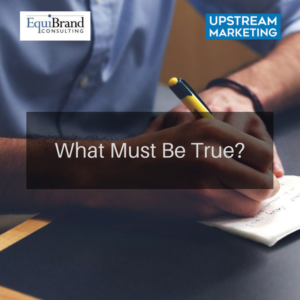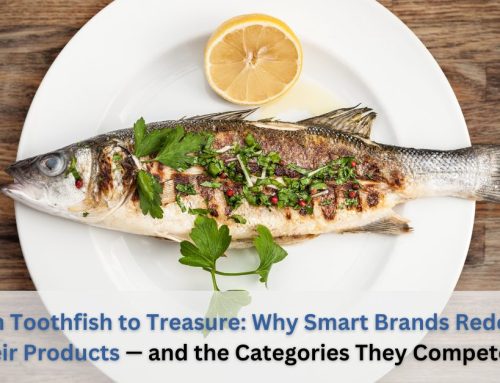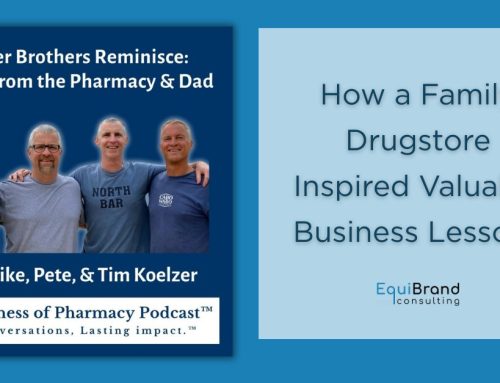Either formally or informally, every organization undergoes a strategic planning process where you envision the future of your brand.
Your goal may be to grow significantly in the next five years by launching a new product, entering new channels, or pursuing new customer segments. Or, perhaps, you may be planning on changing very little, reinforcing operations, and building on secular growth in the marketplace.
Whether your plan is for significant change or to build on the status quo, there is one question you need to ask yourself and your team: What must be true?
This one simple question, applied to your product capabilities, customer segments, competitors, and operational capabilities can provide significant insight into what’s required to succeed.
Because the return on upstream marketing activities is significant and may have a longer time horizon, it is important to ask these questions ahead of time so you can plan accordingly. Additionally, documenting the answers in advance will allow you to define the most appropriate KPIs and devise an insight strategy to monitor important leading indicators of future change.
For example, an airline’s five-year plan may be to focus on business travelers as its most profitable segment, building brand messaging and operations accordingly. What must be true for this strategy to be successful? Please see the table below.
| What Must Be True? (illustrated using “airline business traveler” strategy) | |
|---|---|
| Marketing | CRM (frequent flier miles/loyalty program) must continue to be effective. Brand must be perceived as safe and convenient. |
| Operations/Product | Employees and processes must continue to delight the more demanding business traveler. |
| Economic | The economy must be growing to support continued growth and price inelasticity in the business travel segment. |
| Government and Regulation | No new FAA regulations that would hinder the ability to be profitable. |
| Customer Segment | Corporations must continue to place a high value on convenience and time for employees over cost. |
| Direct Competition | No new competitors or seismic shifts (mergers) in the environment that would erode pricing power and/or operational advantages. |
| Indirect Competition | No mass market uptake of a technological breakthrough replacing the benefit of face-to-face business meetings (e.g., augmented reality/virtual reality, etc.). |
The power of “What Must Be True” is ensuring you think out-of-the-box regarding the internal and external environmental essentials that will allow you to achieve your goals.
Not contemplating these contingencies ahead of time can lead to severe pitfalls, including sudden loss of core business, failed new product launches, and reduced profitability.
In asking the right questions, or engaging in Upstream Marketing principles, your success will come faster, better, and more profitably. This will help ensure all the right elements are in place to achieve a successful strategic planning process. And you will avoid the mistake of assuming the market truths today will be the same as tomorrow.
Can your organization’s strategic planning process be more effective?
As a leading strategic marketing consulting firm, EquiBrand Consulting helps clients obtain deep insight into customers and competitors, as the basis for marketing strategy formulation. Contact us to learn more.




















Follow EquiBrand